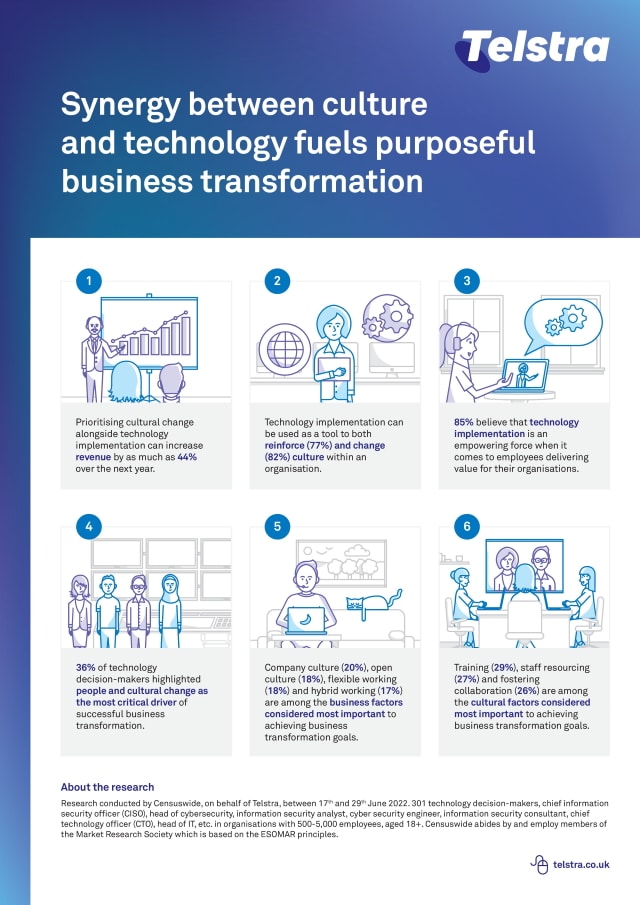Digital transformation needs culture change as well as tech

Prioritizing culture, alongside technology change, can lead to significant increases in revenue according to new research from Telstra.
The study finds that 85 percent of senior technology decision-makers in the UK believe that technology implementation is an empowering force when it comes to employees delivering value for their organizations. But it can be used as a tool to both reinforce (77 percent) and change (82 percent) culture within the organization too.
Technological change is cites as the most important driver of successful business transformation by 43 percent. However, the study also recognizes the importance of people and cultural change, with 36 percent of technology decision-makers in the UK highlighting it as the most critical. Put together, respondents estimate that prioritising these two elements could increase revenue by 44 percent over the next year.
Rob Robinson, head of Telstra Purple EMEA, says:
Our research shows that without proper consideration of people and culture, digital transformation is destined for failure. At the very least, there is a high risk of a protracted transformation and marginal gains from what should be a facilitator of enormous benefits for the business.
The findings show that prioritizing culture alongside technology change can exponentially increase revenue -- combining the two can generate gains of 44 percent according to our respondents. At a time when we're facing significant economic uncertainty and the threat of a global recession is looming large on the horizon, it is essential that employees are empowered to deliver value for their organization.
Digital transformation programs have cost organizations millions, but the key ingredient to successful change has always been the people in the business. Culture and technology are two sides of the same coin when it comes to business transformation, and unless employees buy into the strategic intent of the program, then executing it will be like trying to put a square peg in a round hole. Designing transformation strategies with people in mind is invaluable to achieving your goals.
There is, however, still some uncertainty about how tech and culture influence one another. Respondents are split on this issue, with 21 percent suggesting that changing culture enables the adoption of technology, whereas 19 percent suggested that it's technological implementation that drives cultural change. 19 percent believe implementing technology and changing culture should be done in tandem to deliver purposeful business transformation.
Among the most important cultural factors respondents cite training (29 percent), staff resourcing (27 percent) and fostering collaboration (26 percent).
You can find out more on the Telstra site and there's an infographic overview of the findings below.

Image credit: Olivier26/depositphotos.com
